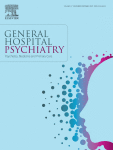- Joined
- Jul 15, 2014
- Messages
- 2,465
- Reaction score
- 3,398
Hi folks,
Does anyone know the current state of the literature for group treatment for EBPs in say depression and anxiety? I've been asked to provide some group treatment while doing postdoc and I'm curious what's out there and effective. I don't want to just run a support group.
Thanks!
Does anyone know the current state of the literature for group treatment for EBPs in say depression and anxiety? I've been asked to provide some group treatment while doing postdoc and I'm curious what's out there and effective. I don't want to just run a support group.
Thanks!




